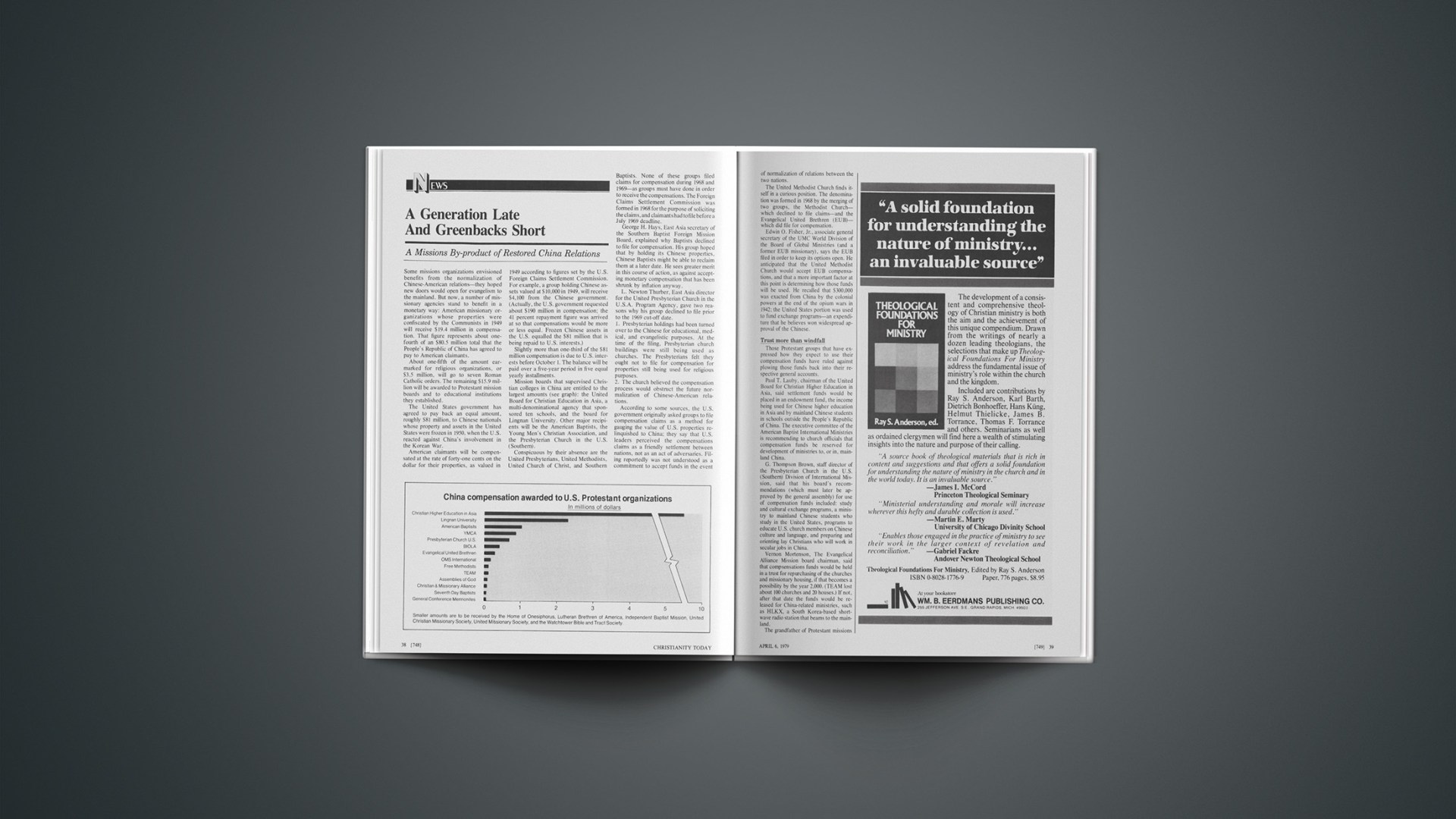Trust More Than Windfall
Those Protestant groups that have expressed how they expect to use their compensation funds have ruled against plowing those funds back into their respective general accounts.
Paul T. Lauby, chairman of the United Board for Christian Higher Education in Asia, said settlement funds would be placed in an endowment fund, the income being used for Chinese higher education in Asia and by mainland Chinese students in schools outside the People’s Republic of China. The executive committee of the American Baptist International Ministries is recommending to church officials that compensation funds be reserved for development of ministries to, or in, mainland China.
G. Thompson Brown, staff director of the Presbyterian Church in the U.S. (Southern) Division of International Mission, said that his board’s recommendations (which must later be approved by the general assembly) for use of compensation funds included: study and cultural exchange programs, a ministry to mainland Chinese students who study in the United States, programs to educate U.S. church members on Chinese culture and language, and preparing and orienting lay Christians who will work in secular jobs in China.
Vernon Mortenson, The Evangelical Alliance Mission board chairman, said that compensations funds would be held in a trust for repurchasing of the churches and missionary housing, if that becomes a possibility by the year 2,000. (TEAM lost about 100 churches and 20 houses.) If not, after that date the funds would be released for China-related ministries, such as HLKX, a South Korea-based short-wave radio station that beams to the mainland.
The grandfather of Protestant missions in China—the China Inland Mission (CIM), now the Overseas Missionary Fellowship—is not in line to receive compensation. The most obvious reason is that the group was registered under British jurisdiction. But beyond that, CIM founder J. Hudson Taylor had established the principle that his mission would never press for reparations and thus would avoid any links with colonial regimes. (Interestingly, CIM headquarters buildings in Shanghai were not directly expropriated. Instead, they were rented by Communist authorities and converted into a hospital. Rent payments for the first several years’ use, made in advance, financed the evacuation of CIM missionaries.)
James Hudson Taylor III, president of the China Evangelical Seminary in Taipei, Taiwan, clings to his grandfather’s convictions (see his letter on page 8). He therefore disagrees with the leadership of his sponsoring Free Methodist Church of North America, which is accepting compensation funds.
Some Presbyterian and Methodist officials, who are affiliated with the United Board for Christian Education in Asia, expressed displeasure that this school-sponsoring group filed for compensations. Filing, they say, was rejected during a UBCEA board meeting. But at a thinly attended board session held shortly thereafter, the board’s attorney pressed for, and obtained, a reversal of that decision. By not filing, the attorney reportedly argued, the board would be abrogating its legal obligations.
One board member wondered if the attorney hadn’t been motivated more by his own commission. The full UBCEA board was told later that the claim, once filed, could not be withdrawn.
HARRY GENET










